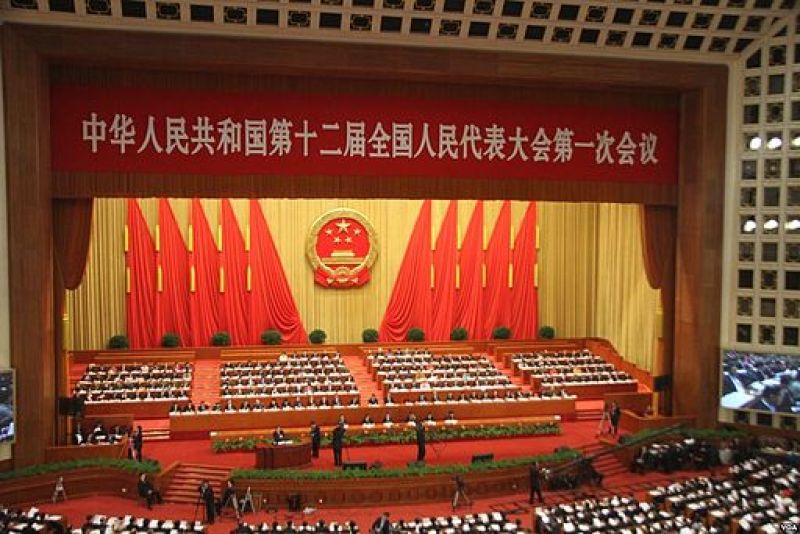

Thousands of provincial delegates wearing eclectic cultural attire attended China's annual parliamentary meeting to listen to Premier Li's address.
China's Premier Li Keqiang spoke of many economic changes in China's future in the Parliamentary meeting on Thursday. The annual Parliamentary meeting was the first major political event in China for the new year; some 3,000 delegates from the provinces in China attended the meeting.
Li shared that China's growth target would be lowered to 7 percent for this year, which is lower than it was last year at 7.5 percent. It is the lowest that the Chinese economy has seen in almost 25 years.
"The downward pressure on China's economy is intensifying. Deep-seated problems in the country's economic development are becoming more obvious. The difficulties we are facing this year could be bigger than last year," said Li.
In order to stabilize the future of the Chinese economy, there must be reform. Premier Li stated the need to change banking, decrease reliance on exports and increase consumer spending, and improve overall income for the Chinese people.
"In order to defuse problems and risks, avoid falling into the 'middle income trap', and achieve modernization, China must rely on development, and development requires an appropriate growth rate," said the Premier.
Li then went on to explain the need to bolster opportunities for startups and innovative businesses that will promote smart technology and quality products. "We will implement the 'Made in China 2025' strategy, seek innovation-driven development, apply smart technology, strengthen foundations, pursue green development and redouble our efforts to upgrade China from a manufacturer of quantity to one of quality."
Also on the agenda were plans to reduce pollution and decrease unemployment rates by supplying the nation with 10 million new jobs this year.
Despite the lower growth target, China's military spending will increase. In a budget report presented at the meeting, China's allocation for military spending was stated at 10.1 percent higher than the previous year.
"Building a solid national defense and strong armed forces is fundamental to safeguarding China's sovereignty," said Li to explain the expected $144 billion that will be used for military spending.
It is unclear exactly how the new military budget will be spent, however some speculate that some of it will be used to increase military wages, which will encourage enlistment. Surrounding countries, however, are suspicious of the new budget and fear that it may affect disputes over territorial claims.


















